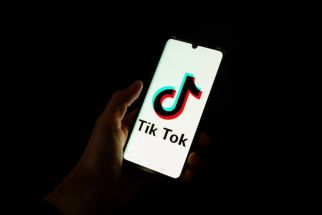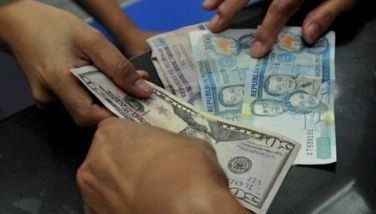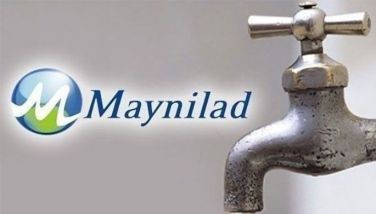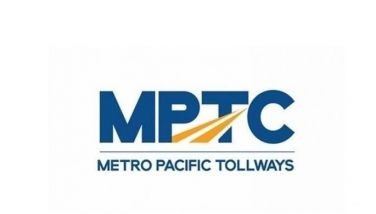The world's safest banks
I got hold of Global Finance magazine’s report on the world’s 50 safest banks in 2009, and this could prove helpful since a lot of people all over the world are antsy about their savings. The criteria for the list include a bank’s asset size, plus a comparison of the long-term credit ratings and total assets of the largest banks around the world. Naturally, a lot of weight was placed on the ratings from Fitch, Moody’s and Standard & Poor’s.
The bank on top of the list is one that is majority-owned by the German government and states, Kreditanstalt für Weideraufbau or KfW, which means Reconstruction Credit Institute. Established in 1948 after World War II, KfW recently posted a net loss of 2.7 billion euros (approximately $3.6 billion) in 2008, which is relatively better than its 2007 losses that reached 6.2 billion euros.
Interestingly, the bank has been scathingly nicknamed as “Germany’s dumbest bank” by Bild, the largest German newspaper, because it transferred 300 million euros or $426 million on the very same day that Lehman Brothers filed for bankruptcy. This triggered an outcry from the German Taxpayers Association who demanded an investigation, calling the transaction scandalous and at the same time demanding for heads to roll.
The bank claimed the transfer was automatic and could have been the result of a technical error. However, several officials were suspended, although Germany’s finance minister said the suspensions are “not the final word” regarding the transaction. The bank’s total exposure to Lehman is estimated at 500 million euros.
Nevertheless, a total of six German banks landed in the list with four of them included in the top 10 spot. UK-based HSBC (whose Hong Kong branch was recently given the first Gold Award by the Hong Kong-SAR government for its green leadership and for being the first bank to go carbon neutral in 2005), was at No. 19. Another recognizable name is UBS which landed at No. 46. (UBS just recently placed on paid leave its executive in charge of off-shore accounts for rich Americans following investigations by US authorities on suspected tax evaders.)
Four US banks also landed in the Top 50 – Wells Fargo, US Bancorp, The Bank of New York Mellon and JPMorgan Chase. Despite the US government’s announcement of plans to help banks remove non-performing assets, investors continue to be wary and are skeptical whether the US Treasury’s plan will work. Conspicuously absent was Citigroup which in 2007 was at No. 11. Obviously, the US government can’t afford to let a bank like Citigroup go under because like AIG, its collapse will have serious global consequences. To date, the bank has received some $50 billion in bailout funds.
While the financial crisis continues to put investors on the edge, Global Finance’s list can help people decide where they want to put their money. In the Philippines, the Bangko Sentral still has issue with such a list, but we’re hoping it can come out with one later.
Ever since the collapse of several banks belonging to the Legacy group, Filipinos have become suspicious of the stability of banks, especially thrift and rural banks. Moody’s also recently announced its “negative” fundamental credit outlook for the Philippines, saying the impact of the global crisis could take its toll in the industry. It also cited the case of Legacy which highlights the weakness on the part of the BSP to move in a fast and decisive manner in resolving the issue of collapsing banks.
According to reports, Celso de los Angeles colluded with employees in siphoning off some P487 million in deposits from a number of rural banks under the Legacy Group. In what has been criticized by victims as a case of “too little, too late,” the BSP said it will be issuing tighter and stricter regulations to prevent banks from engaging in “unsafe” and unsound practices. More specific criteria will also be given as to what practices are considered unsafe, such as disproportionate lending to borrowers that are not considered to be credit-worthy.
The Chamber of Thrift Banks is also moving to strengthen self-regulation among their ranks, and make ethical standards stricter to protect their depositors. This kind of proactive thinking is probably the best that can be done at this time. After all, the experience with Celso de los Angeles and Legacy is a bitter reminder that in the end, the ones who will be left holding the empty bag are the depositors.
* * *
The Philippine Amusement and Gaming Corp. (PAGCOR) held a different kind of rally that landed the country in the Guinness World Records. Dubbed as the Grand BIDA (Batang Iwas Droga) March, hundreds of thousands of schoolchildren, parents and teachers gathered in Manila to rally against illegal drugs. Aside from a citation from Guinness, the march earned for PAGCOR chair Efraim Genuino a new moniker– “Kuya Efren” – from the kids who took part in the mammoth rally.
Of course, critics will question what business the PAGCOR chair has in organizing such an event, but those familiar with the agency say it runs along its role as implementer of high-impact socio-civic projects of nationwide scope. The event is also proof of Genuino’s organizational skills – the same attribute that enabled the gaming agency to post a staggering income of P30 billion in 2008. Observers are now wondering whether Efraim Genuino will soon decide to translate his crowd-drawing power into the political arena.
* * *
Email: [email protected]
- Latest
- Trending



























